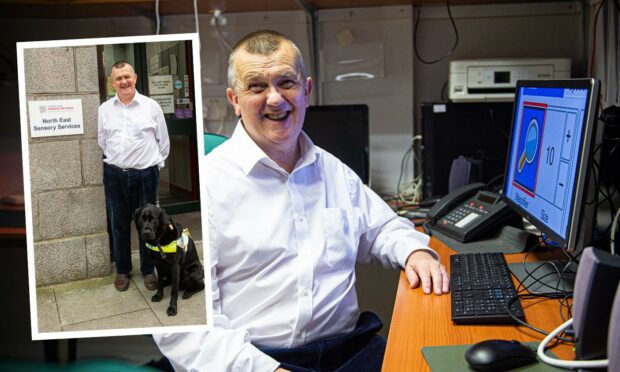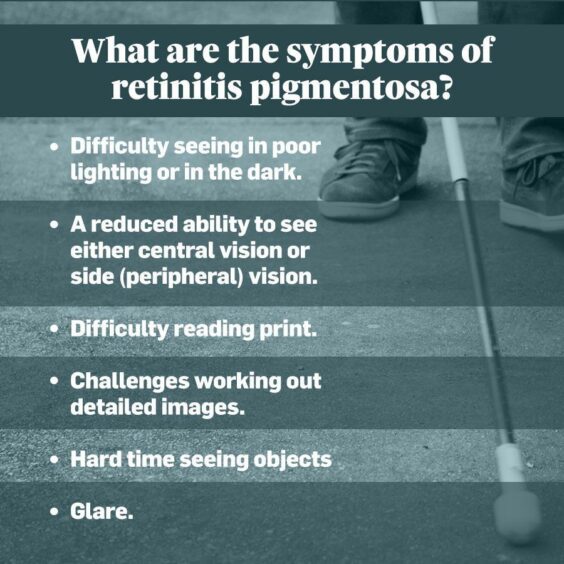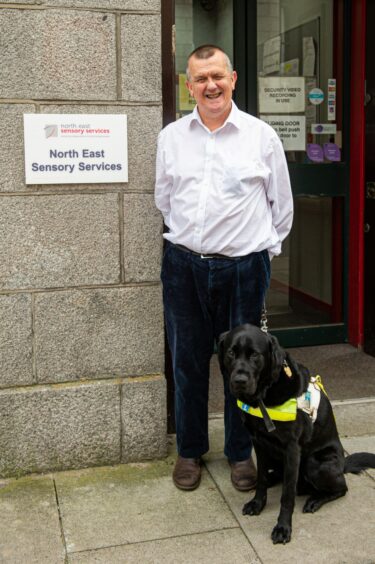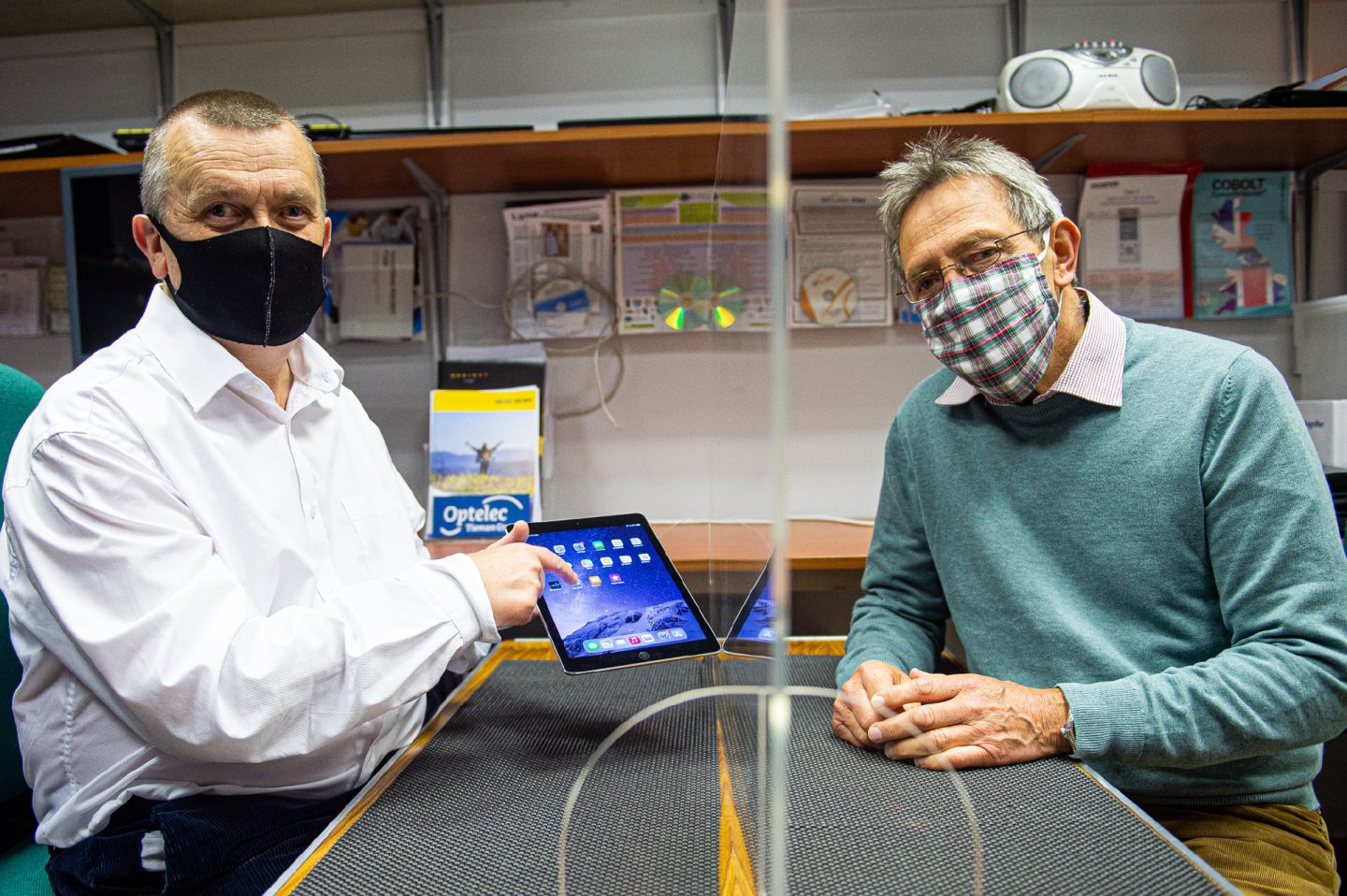Changing careers can be daunting for anyone, but Charles Clark had no alternative when he began losing his sight.
While working as a fisherman in 1989, he was diagnosed with retinitis pigmentosa, an eye disorder which causes progressive vision loss.
Back on shore, he began studying computing at college as he lost his sight over a five-year period.
But he then took up a role with North East Sensory Services (Ness) working in the charity’s resource centre.
Ever since, he’s taught thousands of blind and hearing-impaired people how to use new technology to improve their lives and increase their independence.
In fact, his bosses have worked out he’s helped more than 3,000 people during his 27-year career, which he’s now preparing to retire from.
And during that time, he’s only ever taken five days off sick.
‘Being blind makes me better at my job’
“It affects everyone slightly differently, but I think being blind makes me better at my job,” Charles said.
“You always encounter people in a worse situation than you.
“Yes, I may be blind, but then I go to someone’s house and they’re blind and only have one arm, or have trouble speaking.
“And then when I meet someone who might consider me worse off, they see what I’m doing and how I’m working, and they see what’s possible and what can be done when you’re blind.”
‘I get a real buzz out of helping people’
The 60-year-old, who lives with his wife in Inverurie, and receives daily assistance from his guide dog Marischal, described how rewarding his career has been.
“It’s never been a chore to me,” he said. “When I’m able to show someone how to use a computer to make their life better, even if it’s just a small thing for me, it can completely change their life.
“I get a real buzz out of that.
“My job is my hobby, and I don’t think there’s a lot of people who can say that.
“I was really lucky to find Ness,” he added. “I knew I had to change my career, my options were limited, and they were there. They’ve been great for me.”
Charles has always been keen to keep up-to-date with developments in technology to help others.
While many would have faced spending thousands of pounds on specialist equipment in the past, there are now apps on smartphones and tablets which are readily available.
‘Charles will be a hard act to follow’
Graham Findlay, chief executive of North East Sensory Services, said: “Charles says he was lucky to find Ness and work with us all these years.
“But we’re the lucky ones to have benefited from his expertise and commitment.”
He added: “His dedication and passion for what he does helps people of all ages gain more independence, and hugely improves their quality of life.
“He has a can-do attitude and will find solutions to problems his service users might be facing.
“He will be a hard act to follow but I’d personally like to wish him all the best for his well-deserved retirement.”
More health news…
Vitamin A trial could help restore sense of smell after Covid
Natasha’s Law – new food labelling comes into force
Struggling with Sunday night dread? Here’s how to cope with it



